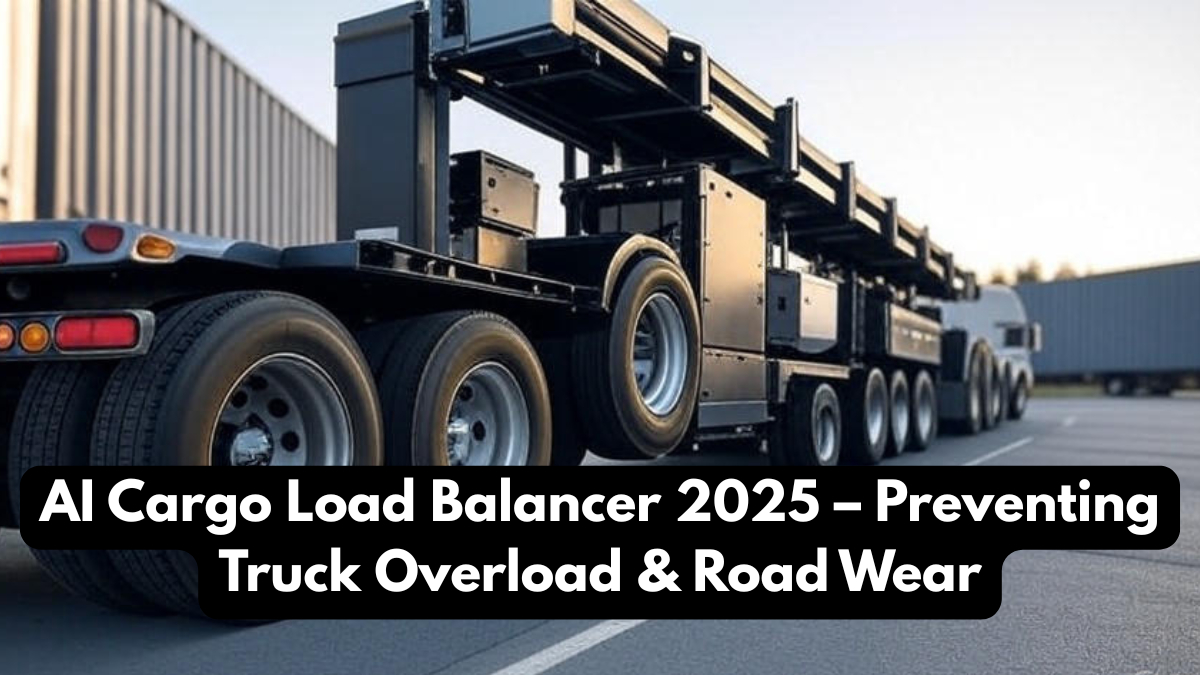The transport industry in 2025 is moving beyond manual calculations and guesswork. AI Cargo Load Balancer technology is revolutionizing how fleets distribute weight, ensuring safer travel and reducing costly infrastructure damage. Paired with Smart Logistics, this innovation doesn’t just make roads safer — it makes operations more efficient, cost-effective, and environmentally friendly. In a time when overloaded trucks are a leading cause of road wear and accidents, these solutions are becoming essential for every logistics operator.

How AI Cargo Load Balancer Works
At its core, AI Cargo Load Balancer uses sensors, machine learning, and predictive analytics to determine the safest and most efficient way to distribute cargo weight. It analyzes vehicle specifications, road conditions, and cargo type in real-time. This data is processed through Smart Logistics software, allowing instant adjustments to loading procedures before trucks even hit the road.
This combination ensures that operators avoid fines, prevent breakdowns, and maintain optimal vehicle balance for better fuel economy.
Key benefits include:
- Accurate load weight monitoring
- Real-time alerts for uneven distribution
- Integration with GPS and routing tools
- Compliance with transport safety laws
The Cost of Overloaded Trucks
Overloaded vehicles can cause severe road damage, increase accident risk, and shorten vehicle lifespan. Using AI Cargo Load Balancer in combination with Smart Logistics prevents these problems, offering long-term savings and enhanced safety.
Here’s a quick comparison:
| Problem Without AI Cargo Load Balancer | Impact on Operations | How AI Cargo Load Balancer Helps |
|---|---|---|
| Overweight fines | Increased costs | Automatic load compliance alerts |
| Road damage | Higher repair taxes | Balanced weight distribution |
| Fuel inefficiency | Wasted fuel expenses | Optimized loading for fuel use |
| Higher accident risk | Safety concerns | Stability monitoring in real-time |
Integrating Smart Logistics for Full Efficiency
While the AI Cargo Load Balancer ensures trucks are loaded correctly, Smart Logistics oversees the entire delivery chain. It helps schedule shipments, choose optimal routes, and forecast demand to prevent rushed, unsafe loading. This integration means companies can:
- Avoid unnecessary trips by consolidating loads
- Schedule maintenance based on real-time load history
- Reduce carbon footprint through optimized routing
By 2025, government transport bodies are also pushing for industry-wide adoption, seeing the technology as a way to extend road life and cut down on repair costs.
Future of AI in Cargo Management
Looking ahead, AI Cargo Load Balancer systems will become standard in fleet vehicles, possibly mandated by law. With Smart Logistics, future upgrades will use AI to predict road damage before it happens, based on cumulative truck loads and traffic density. These predictive models will also help cities plan better infrastructure, reducing taxpayer expenses.
Fleet operators embracing this technology today are positioning themselves for future compliance, competitive advantage, and safer road networks.
Conclusion
The AI Cargo Load Balancer is no longer just a tech luxury — it’s a vital safety and cost-saving tool. Coupled with Smart Logistics, it prevents truck overload, reduces road wear, and improves fleet efficiency. For logistics companies aiming to remain competitive and compliant in 2025, adopting this technology is not an option — it’s a necessity.
FAQs
How does AI Cargo Load Balancer work?
It uses sensors and AI algorithms to monitor cargo weight distribution in real-time and recommend adjustments before and during transport.
Why is Smart Logistics important with this technology?
Smart Logistics ensures the entire supply chain is optimized, from load scheduling to route planning, maximizing the benefits of AI-based load balancing.
Can AI Cargo Load Balancer reduce operational costs?
Yes, by preventing fines, improving fuel efficiency, and reducing maintenance needs, it significantly cuts costs.
Is AI Cargo Load Balancer mandatory in 2025?
While not universally mandated, many regions are introducing regulations encouraging or requiring its adoption.
Does it work for all types of trucks?
Yes, it can be customized for various vehicle types, from small delivery trucks to heavy-duty freight carriers.
Click here to learn more